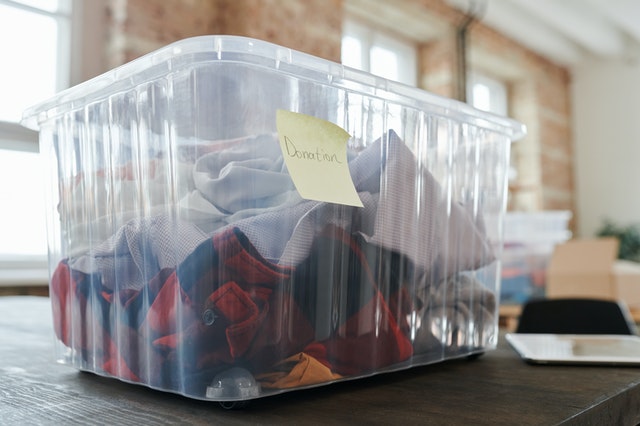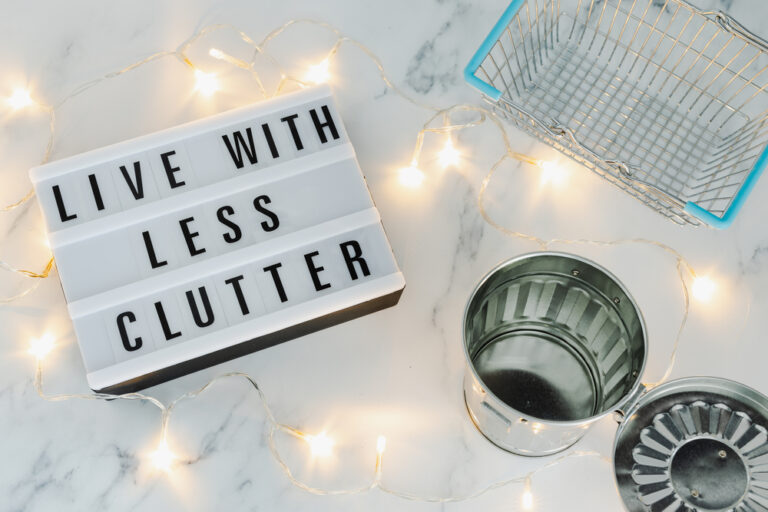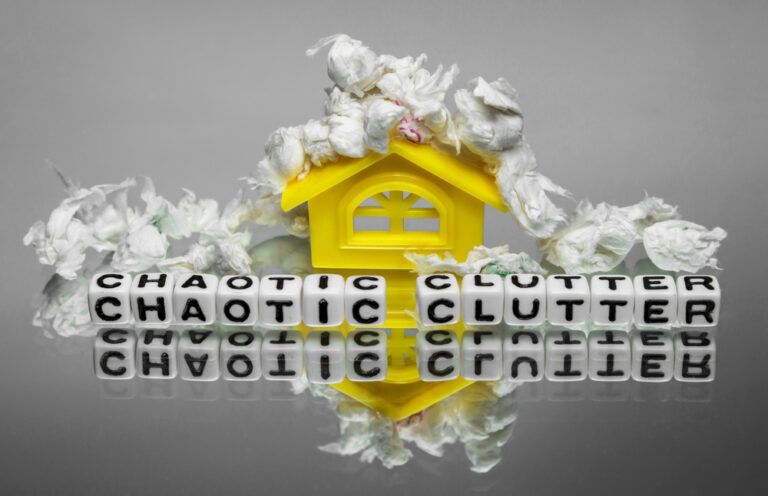8 Mistakes That Slow Down Your Decluttering Progress (And How To Avoid Them)
Are you feeling frustrated with your decluttering progress? Do you find that, despite all that time and energy spent, you haven’t noticed significant difference in your home?
I totally understand. Decluttering your home is a big step in simplifying your life, but it’s not always easy.
Based on lessons learned from my own “extreme” decluttering experience, in this blog post, I am sharing some tips on how to avoid the common mistakes that can slow down your decluttering progress.
My personal decluttering journey
Several years ago, before our family (my husband, our then 5-year-old son, and I) relocated to the United States from Asia, we underwent multiple rounds of decluttering.
As someone who had strong emotional attachment to stuff and couldn’t let go easily, my declutter progress was very, very slow in the beginning. But as our targeted moving date gradually approached, I had no other choice but to figure out ways to overcome my obstacles. A couple of great friends also lent a helping hand and I am forever grateful for them.
Eventually, we managed to get rid of more than 95% of our stuff and only took 5 boxes with us when we moved in 2020. I felt like I had undergone a profound transformation, and was ready to start a new life in the US.
Based on my experience of this extreme decluttering journey, I want to share some common mistakes that can hinder your progress and provide tips on how to avoid them.
Let’s dive in!
Mistakes that Slow Down Your Decluttering Progress
Mistake #1: not setting a goal
Without a goal, decluttering can feel aimless and never-ending. You are also likely to give up If you don’t have a goal that serves as your motivation.
Before you start decluttering, ask yourself: Why do I want to declutter?
Is it because you have too many clothes, that getting dressed in the morning is always difficult and inefficient?
Is it because your children’s toys are overflowing and you can’t walk to anywhere without stepping on them?
Is it because your mother is coming to visit in a month and you want to make her stay comfortably in the guest bedroom?
Or is it because after watching lots of decluttering shows lately, you want to challenge yourself and give decluttering a try, too? (Not sure if this is a compelling WHY that motivates you when facing challenges, though).
In addition to knowing your ‘WHY’ of decluttering, it is also important to set a specific and measurable goal before each declutter session.
Here are some examples:
- In the next 30 minutes, I will focus on decluttering this junk drawer.
- At the end of today, I will fill 2 bags of clothes and put them in the trunk of my car.
- I will spend this afternoon sorting through all of my summer t-shirts.
Having a goal will help you focus on your priorities, thus making decluttering effort more efficient.
Mistake #2: Not starting from the ‘easiest’ area of your home
If you have not decluttered regularly (or ever), it’s not wise to start by diving into the most cluttered room in your house, or a room that is filled with sentimental items.
Because if you pick the most challenging place to start decluttering, you are likely to get discouraged quickly and give up.
Start with areas that are ‘relatively easy’ for you to tackle.
As you gain more confidence and become better skilled, progress towards areas that require more time and effort.
What are some of the ‘easy’ places to start? You might consider the following:
- Areas with relatively less clutter – so it can be done rather quickly.
- High traffic areas – so that you(and everyone in your household) can easily see and feel the difference.
- Areas that you don’t care much about – when you declutter items that you have neutral feelings about, you can make logical decision without feeling sentimental attachment.
I have another post dedicated to where to start decluttering. Check it out!
Mistake #3: Not knowing how to get clutter out of your house
It’s essential to think through your approach before you start decluttering.
Consider whether you want to donate items and, if so, where you plan to donate them. Take some time to do a bit of research in advance.
Are you thinking about selling things online or having a yard sale? It’s a good idea to assess whether the potential returns are worth the time and effort involved. Additionally, consider if you know anyone who might have a use for specific categories of items.
By establishing these guidelines for handling your clutter ahead of time, you can streamline the decluttering process. This approach helps you avoid making numerous decisions on the spot, allowing you to focus on the main goal: clearing your home of excess items.
Mistake #4: creating Too many ‘just in case’ scenarios in your head
Do you find it difficult to let go of your stuff?
Especially if it is something you’ve hardly used, or is still functional and in good condition. Getting rid of it might feel like throwing your money away, how wasteful!
So you create some ‘just in case’ scenarios in your head that might happen where you might need that item.
Scenarios like:
- When I pick up gardening again, these empty containers will come in handy.
- Next time when I have summer party, I will remember to use that ice cream maker.
- I’ve always wanted to reread these books when I have time.
These scenarios sure make you feel better about keeping the items. But most likely, you are just keeping your clutter around longer!
Instead of focusing so much on your ‘stuff’, how about a shift of mindset and focus on creating a spacious home that you love?
You will become more rational when deciding what to keep and what to get rid of.

Mistake #5: buying storage systems before finishing decluttering
In the past, when I didn’t know the difference between ‘decluttering’ and ‘organizing,’ I would regularly buy beautiful organization systems and store (instead of getting rid of) my clutter!
Now I understand, that organized clutter is still clutter. I was wasting my time and energy organizing the stuff that should be out of my home.
Always declutter first before you even start to think about organizing.
Once you are done with the decluttering process, you can then purchase the appropriate types/sizes/amount of storage baskets/bins/boxes based on your need.
Mistake #6: Avoiding Decluttering Expensive Items
Do you feel guilty getting rid of expensive items even though you no longer use or need them?

We tend to associate our belongings with their monetary value, which makes it particularly difficult to declutter high-priced items. It feels like ‘throwing money away‘ by getting rid of items that we paid a lot of money for.
Here is a way to shift your mindset:
Your money was gone the moment you made the purchase. Your bank account balance will not change again when you get rid of it.
If you are interested in dealing with decluttering guilt, you may want to check out this post.
Mistake #7: Spending too much energy/time on selling
Since it’s normal to associate the monetary value to our things, when you declutter, it’s especially hard to let go of the stuff that you’ve spent good money on.
You might want to try selling items you’re decluttering to recoup some of the money.
However, it takes lots of time and effort to sell things. And while you see them as valuable, they often aren’t worth nearly as much to others.
Spending time selling things can slow down your decluttering progress significantly. The results of your effort are unknown, and it they do not sell, you still have to find other ways to get them out of your house.
If your main goal of decluttering is to regain the space in your home, then selling might not be the top priority you should focus on.
Mistake #8: Not finding Motivation to keep going

Decluttering is a long journey, and there are days when you just don’t feel like doing anything. You might be tempted to toss everything into a spare room and forget about it.
In those moments, you have a choice: give up or find the motivation to keep going.
Think back to why you started decluttering in the first place. Imagine the calm and clutter-free space you want to create. Remembering your “why” can help reignite your determination.
You can also make the process more enjoyable by listening to music or a decluttering podcast. Establish a regular routine for decluttering to stay on track. Lastly, reward yourself for your progress, no matter how small. These steps can help you stay motivated on your decluttering journey.
Conclusion
The above are the 8 mistakes to avoid when decluttering. To recap, they are:
- Not having a goal for your decluttering project
- Not starting from the easiest area of the home
- Thinking about excuses to keep items
- Not sure how to get your clutter out of your house
- Buying storage systems before decluttering is done
- Feeling guilty about getting rid of expensive items
- Spending too much time and energy on selling
- Not finding motivation to keep going
I hope this article is helpful to you!






